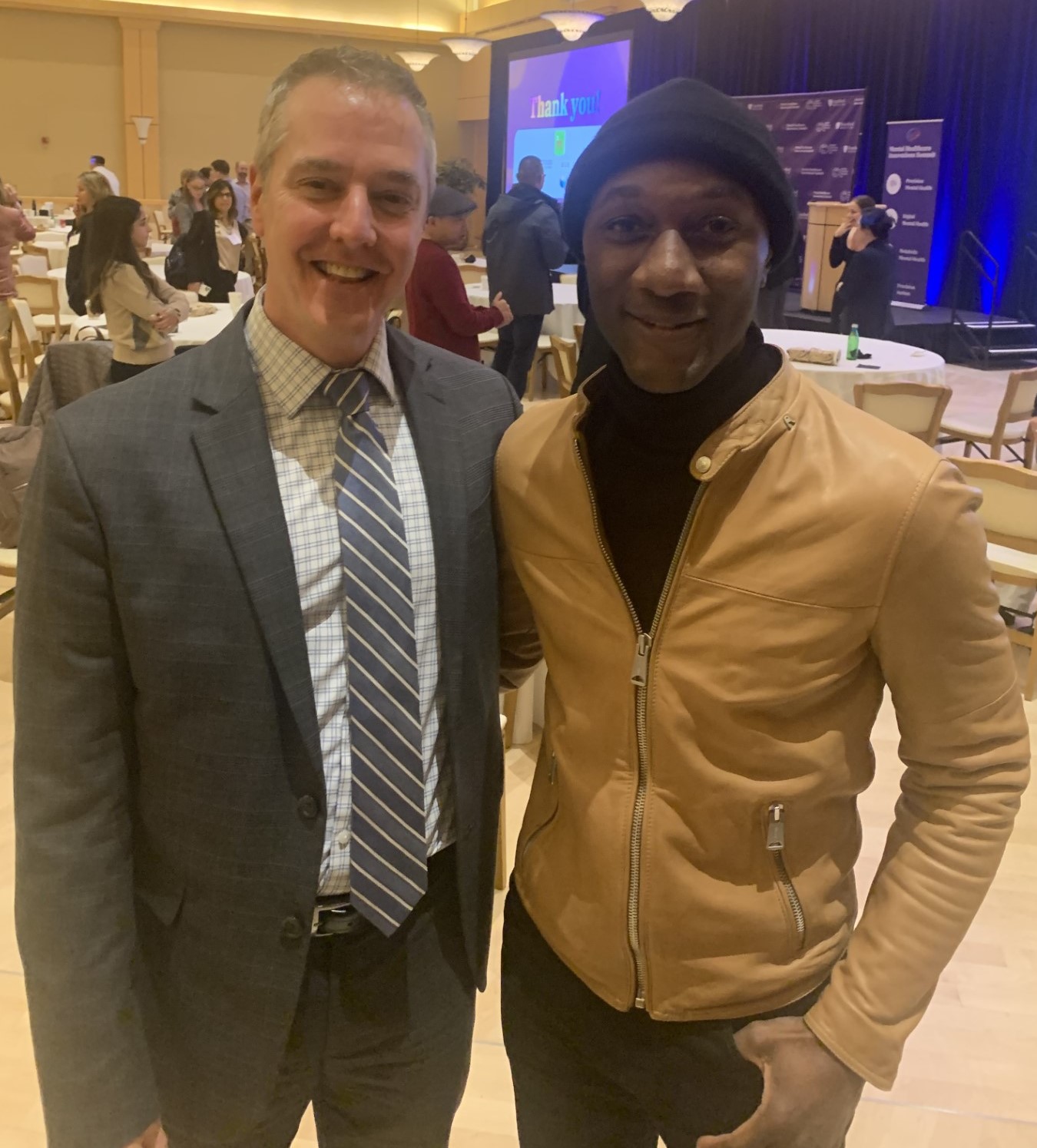
Aloe Blacc and I at this year’s Summit
The Stanford Innovations in Mental Healthcare Summit, held on November 29 and 30, 2023, brought together leading experts and innovators in the field of mental health research and practice. I was deeply honored to be among the esteemed speakers at this event, which spotlighted cutting-edge developments in precision mental health, metabolic psychiatry, autism, digital mental health, and addiction.
Precision mental health emerged as a key theme, underscoring a tailored approach to mental healthcare. This paradigm shift towards individualized treatment strategies recognizes the unique genetic, environmental, and lifestyle mosaic of each patient. Discussions led by pioneers like Dr. Michael Snyder from Stanford illustrated the potential of personalized medicine in revolutionizing mental health treatment.
In the realm of digital mental health, the summit showcased innovations like telepsychiatry, wearable technologies, and AI-driven tools. Dr. Sumbul Desai, Vice President of Health at Apple, illuminated how digital platforms are transforming mental health care, offering new horizons for patient engagement and treatment efficacy.
Elizabeth Horn, Founder and Executive Director of the 2m Foundation and co-founder of the Autism Impact Fund, delivered a compelling presentation on autism. She has worked tirelessly to fast-track advancements in autism research, development, and support.
Addiction, a complex and multifaceted challenge, was addressed with a blend of neuroscience, public policy, and therapeutic interventions. Speakers like Patrick J. Kennedy and Dr. Keith Humphreys brought to light the importance of integrating policy and practice in tackling addiction.
I was privileged to join Drs. Shebani Sethi and Jeffrey Becker to delve into the intricacies of metabolic psychiatry. Our presentations collectively illuminated how metabolic processes are intricately linked to mental health. The host of the event, Ben Rolnik, shared his personal story of using the ketogenic diet to overcome chronic depression.
Advocacy was at the forefront. Dr. Diana Ramos, the Surgeon General of California, brought a wealth of public health expertise, emphasizing the importance of statewide initiatives and policies in mental health. Aloe Blacc, a Grammy-nominated singer/songwriter, extended his advocacy beyond music, sharing insights from his work in biotechnology and his commitment to positive social transformation.
The diversity of perspectives – from neuroscientists and clinicians to technologists and policy advocates – created a rich tapestry of insights.
This summit was more than a congregation of experts; it was a beacon of hope and progress in mental healthcare. It underscored the power of collaborative innovation in addressing some of the most pressing challenges in the field. As a participant, I was inspired by the collective commitment to advancing mental health and humbled to contribute to this pivotal dialogue.
Christopher M. Palmer, MD, is a Harvard psychiatrist and researcher working at the interface of metabolism and mental health. He is the director of the Department of Postgraduate and Continuing Education at McLean Hospital and an assistant professor of psychiatry at Harvard Medical School. For more than two decades, he has held leadership roles in psychiatric education at Harvard, McLean Hospital, and nationally.


